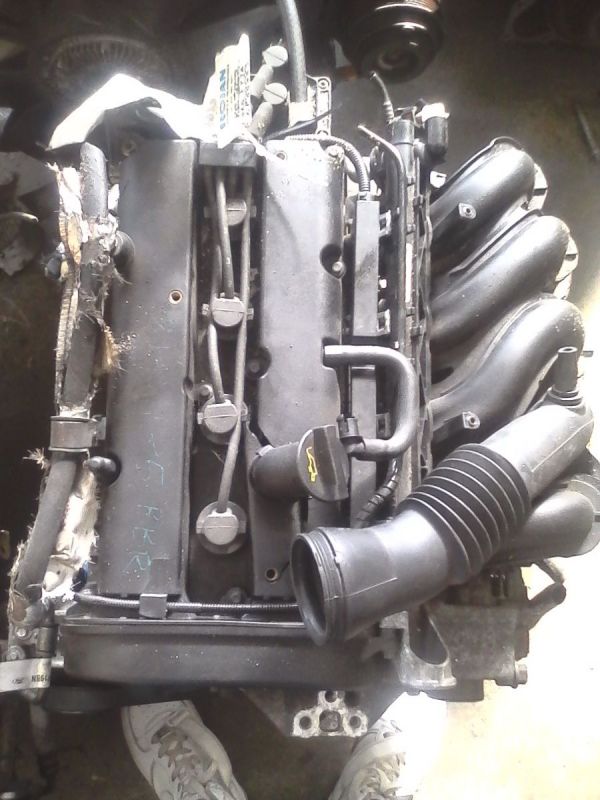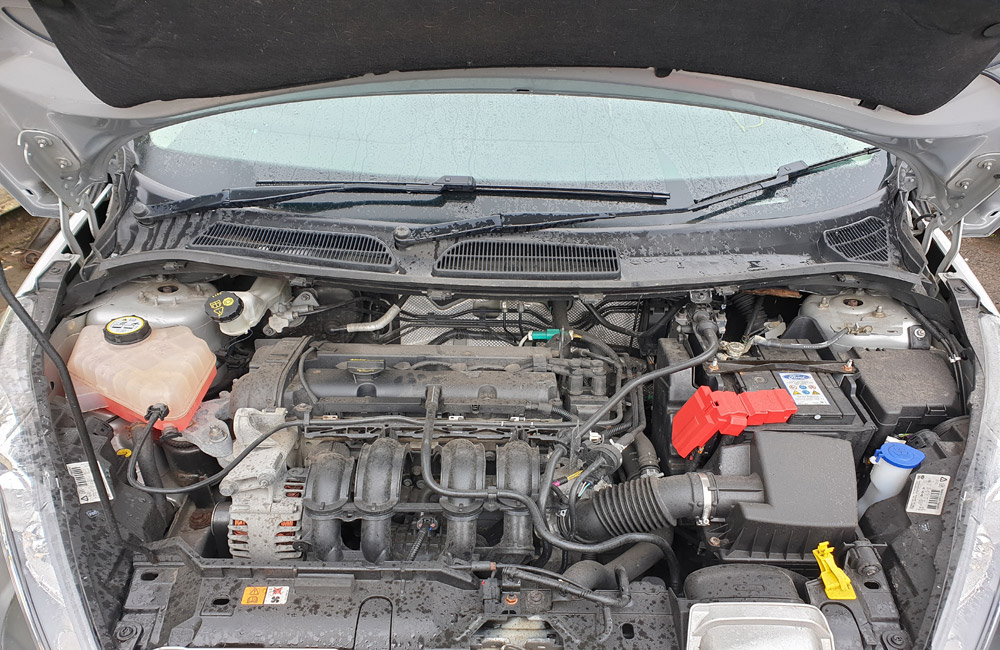Troubleshooting Ford Fiesta Engine Problems: What You Need to Know
Wiki Article
The Future of Engines: Technologies Driving Lasting Power Solutions
As the automobile industry navigates the vital change towards sustainability, the future of engines is progressively defined by groundbreaking technologies. Electric engine innovations, together with appealing advancements in hydrogen fuel cells and biofuels, are improving the landscape of power solutions.Electric Engine Developments
The advancement of electrical engine growths represents a critical change in the aerospace and automobile sectors, driven by the urgent requirement for lasting choices to nonrenewable fuel sources. This transition is identified by considerable innovations in battery modern technology, power electronics, and electric motor design, which collectively improve the effectiveness and performance of electric engines.Current innovations have led to the development of lighter, extra energy-dense batteries, such as lithium-silicon and solid-state batteries, which assure longer ranges and shorter charging times. Additionally, enhancements in electric motor efficiency, such as using long-term magnets and progressed cooling down systems, allow electrical engines to operate effectively under differing problems. These enhancements not just improve automobile efficiency but also add to a decrease in overall energy consumption.
Moreover, the combination of sophisticated software program algorithms has optimized energy management in electric automobiles, enabling regenerative braking and anticipating billing methods. As suppliers increasingly accept electric propulsion, the automobile and aerospace sectors are experiencing a paradigm shift towards greener modern technologies. This development not only meets regulative demands yet also aligns with customer preferences for eco pleasant transportation solutions, strengthening electric engines as a cornerstone of future sustainable flexibility.
Developments in Biofuels
As the vehicle and aerospace industries significantly prioritize sustainable energy sources, improvements in biofuels emerge as a complementary solution to electrical engines. Biofuels, obtained from organic materials such as plants, waste, and algae, provide a cutting-edge method for minimizing greenhouse gas discharges and dependence on fossil fuels.Recent research study has concentrated on boosting the performance and sustainability of biofuel production. Second-generation biofuels use non-food feedstocks, reducing competitors with food supply and reducing ecological influence. In addition, innovations in synthetic biology have actually made it possible for the design of microorganisms to generate biofuels better, causing greater yields and lower production prices.
Furthermore, the advancement of drop-in biofuels permits for seamless combination into existing facilities, allowing a smoother change for markets typically based on nonrenewable fuel sources. ford fiesta engine. These fuels can be utilized in present engines without modifications, facilitating their adoption across numerous sectors
Investments in biofuel modern technology, together with encouraging policies, are essential to drive development and scalability. As the worldwide area looks for to battle climate adjustment, biofuels offer a pragmatic, immediate option that aligns with the overarching goal of sustainability in transportation and aeronautics.
Hydrogen Gas Cell Technology
A growing variety of scientists and firms are exploring hydrogen fuel cell technology as a feasible option to conventional source of power in transport and energy systems. This innovation transforms chemical power from hydrogen right into electrical power with an electrochemical response, with water as the only by-product, making it an eco-friendly option.The core of hydrogen gas cells is the fuel cell pile, where hydrogen particles are split right into electrons and protons. The flow of electrons creates electrical energy, while protons move with a membrane to integrate with oxygen from the air, creating water. This process causes high performance and reduced exhausts, placing hydrogen fuel cells as an important player in the change to lasting power.
Considerable improvements have been made in enhancing the longevity and effectiveness of fuel cells, alongside minimizing expenses with ingenious manufacturing methods. pop over to these guys The advancement of hydrogen manufacturing methods, such as electrolysis powered by eco-friendly energy resources, enhances the sustainability of the total system. As facilities for hydrogen refueling expands and production techniques come to be much more reliable, hydrogen fuel cell technology holds fantastic pledge for decarbonizing different sectors, consisting of sturdy transport and fixed power generation.
Hybrid Solutions and Their Impact
Hybrid systems stand for a considerable development in sustainable engine modern technology, merging standard interior burning engines with electric propulsion to enhance power efficiency and lower emissions (ford fiesta engine). This twin approach permits automobiles to use both power resources, allowing better adaptability in power consumption and lowering reliance on nonrenewable fuel sources

In enhancement to environmental benefits, hybrid systems use consumers a viable shift in the direction of totally electrical cars. They ease variety anxiety by incorporating the comfort of gas with the benefits of electric propulsion, making them an attractive alternative for a bigger audience. As makers purchase hybrid technology, the growth of even more innovative battery systems and light-weight materials continues to boost performance. In general, hybrid systems represent a critical action in the direction of achieving lasting transport and attending to the immediate need for eco pleasant power options.
The Role of AI in Engine Style
Leveraging sophisticated algorithms and machine learning techniques, the auto industry is progressively integrating expert system (AI) right into engine design procedures. AI boosts the efficiency and efficiency of style by evaluating huge datasets to identify optimum arrangements and performance specifications. This ability permits designers to mimic various operating conditions and forecast engine actions under several scenarios, considerably minimizing the moment and price related to standard prototyping techniques.In addition, AI assists in the development of sophisticated products and burning procedures customized for sustainability. By optimizing gas performance and decreasing discharges, AI-driven layouts line up with international campaigns focused on decreasing the carbon footprint of vehicle engines. Maker discovering algorithms can additionally predict maintenance needs, resulting in improved dependability and durability of engine components.
Additionally, AI contributes in the integration of electrification innovations, such as crossbreed systems, where it can enhance battery management and energy healing processes. As the market relocates in the direction of more sustainable power solutions, the duty of AI in engine style becomes increasingly vital, driving development and improving the performance of future engines. Inevitably, the collaboration in between AI and engine layout advertises a brand-new era of smarter, cleaner, and much more reliable auto modern technologies.

Conclusion
In final thought, the future of engines is being shaped by a merging of ingenious innovations that focus on sustainability. Electric engine advancements, biofuel advancements, hydrogen gas cells, and crossbreed systems collectively contribute to a considerable reduction in discharges and ecological impact.Electric engine developments, together with encouraging advancements in hydrogen fuel image source cells and biofuels, are improving the landscape of power options. Additionally, renovations in electric motor efficiency, such as the use of irreversible magnets and progressed cooling down systems, allow electric engines to operate successfully under varying problems. By optimizing websites gas effectiveness and minimizing emissions, AI-driven designs line up with global initiatives aimed at lowering the carbon footprint of automotive engines. As the industry moves in the direction of more sustainable power services, the role of AI in engine layout becomes increasingly essential, driving technology and improving the efficiency of future engines. Electric engine advancements, biofuel advancements, hydrogen gas cells, and hybrid systems jointly contribute to a significant decrease in discharges and ecological effect.
Report this wiki page